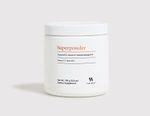Before you panic, here's how to tell what's really going on.
It happens annually: Spring sneaks up and signals trees to start flowering when there’s still a chill the air, often catching allergy sufferers off guard. But these days, the annoyance of waking up with a sore throat and heavy chest comes with another emotion — fear that the symptoms are actually due to COVID-19, not allergies. This is especially true given the slew of new, more transmissible variants.
The first thing to consider: If you don't have a history of seasonal allergies, you should be more suspicious of symptoms (though you can develop allergies at any time). Remain calm and read on to learn when there may be cause for concern — and what to do, either way.
How to Tell the Difference Between COVID-19 and Allergies
The Overlapping Symptoms
The hallmarks of seasonal allergies — the immune response kicked off when your body treats pollen as an attacker — share many similarities to COVID-19, the illness caused by the novel coronavirus. “Coughing, shortness of breath, post-nasal drip (and the accompanying sore throat), asthma, congestion in the chest, fatigue and headaches have all been cited in both conditions,” says allergist Robert W. Eitches, M.D. FAAAAI (Fellow of the American Academy of Allergy Asthma and Immunology). In addition, anosmia — the loss of smell (and often with it, taste) — also seems to be an overlapping symptom.
A Few Key Differences
The list of differences in symptoms is shorter, with the main ones being that people with COVID-19 may also experience a fever, shaking chills, gastrointestinal issues (including diarrhea) and weight loss, says Dr. Eitches, who adds: “COVID-19 is more likely to cause chest pain, low oxygenation and the sensation of your lungs and small airways being filled up with bricks, even at rest.”
Can Allergies Make You More Vulnerable to COVID-19?
From a behavioral standpoint, Dr. Eitches notes that people with allergies tend to touch their faces more frequently. Every time you wipe your nose or rub your eyes, you run the risk of introducing viral particles into your body. Not only that, but “a lot of allergic people have asthma, and anyone with asthma has a higher risk of having a bad outcome from a coronavirus infection, even if they are young and in otherwise good health,” he warns.
Given all of this, continuing to follow the CDC (and also common sense) guidelines that advise wearing a mask outside and spending time indoors to improve both your seasonal allergies and reduce your risk of exposure to the coronavirus.
Tips to Treat Whatever Ails You
Regardless of what's causing your discomfort, there are some remedies that can help treat both seasonal allergies and COVID-19 — as long as you experiencing mild symptoms and don't have an underlying medical condition.
Medical herbalist Daniela Turley has been supporting her patients with a range of holistic therapies that can address both the symptoms of seasonal allergies and help reduce the severity of COVID-19 symptoms, if exposed. Turley is careful to say that prevention is difficult — if not impossible — given that we are dealing with a "novel" virus that humans currently have no immunity to. But the recommendations below may provide some protection and help lessen the severity of an illness.
Vitamin C
This popular compound helps clear the histamine caused by allergies, and may help fight viral infections as well. A recent small study found that Vitamin C didn't alleviate symptoms of an established COVID-19 infection, but plenty of studies point to vitamin C's ability to support both the innate and adaptive immune system. The oral dose Turley recommends is 500mg twice per day. If tolerated well (Vitamin C can cause intestinal distress in some people), she says a stronger dose of 3000mg-5000mg — spaced throughout the day — can be safely taken. One note: Liposomal Vitamin C (when the compound is delivered in a fat-like particle) tend to be absorbed more effectively and result in higher blood levels of the vitamin than other forms.
Quercetin
This bioflavonoid, found in food sources such as onions and apples, is an antihistamine and also inhibits viral activity per studies on its impact on influenza. It can also be found in supplement form and taken at a dosage of 500mg three times per day. Superpowder, an immune supplement from THE WELL, contains both vitamin C and quercetin.

Baikal Skullcap
This herb — usually found in tincture form — stabilizes histamine-containing mast cells and is helpful at blocking the pathways typically involved in acute respiratory syndrome and lung inflammation. Due to its well-known effectiveness, Baikal Skullcap has been in high demand (and short supply) during this pandemic, but you can often find it as part of other allergy formulations.
NAC (N-Acetyl Cysteine)
This supplement boosts the body’s levels of the master antioxidant glutathione. Turley notes that people with chronic lung disease generally have low levels of glutathione, so optimizing it could prove protective. She calls the compound a "forcefield for your lungs" thanks to its ability to calm inflammation, liquify mucus and help prevent the formation of virus-trapping biofilm. Many studies have been done on NAC's effectiveness in treating other respiratory aliments, such as influenza and chronic bronchitis.
Shop THE WELL Clean-Up Crew, which contains 900mg of NAC, here.
Nasal Irrigation
Using a saline spray can help with sinus congestion and can be used to rinse out pollen immediately after being outdoors. In that sense, it can theoretically be used to dislodge viral particles from inside the nasal cavity as well.
Sleep
Getting more quality, immune-boosting sleep is crucial during this stressful period. Check out these yoga poses for better sleep, if you have trouble getting the rest your body needs.
Wash Up
Laundering your clothes, fabric face coverings — and in the case of allergies, washing your hair — as soon as you get indoors can help stop the transfer of viral particles or pollen.
Food As Medicine
As much as possible, it's important to prioritize nutritious, fresh produce and avoid processed foods. Also try to avoid gluten and dairy, two common allergenic foods which can cause inflammation and should be avoided in sensitive people, says Dr. Eitches.
A few more food-based tips from Turley:
Eat red onions.
Again, they are high in the plant flavonol quercetin, which is anti-inflammatory. Other food sources of quercetin include apples, radish leaves, broccoli and herbs, such as dill and cilantro.
Brew ginger or peppermint tea.
Fresh ginger and peppermint are anti-viral and anti-inflammatory.
Add raw garlic to meals.
Crush the garlic gloves and let them sit for 15 minutes to activate the allicin, the compound in garlic that has powerful antioxidant and antimicrobial properties.
Want more tips to keep your immune system functioning optimally? Check out these 30 suggestions from Frank Lipman, MD, Chief Medical Officer of THE WELL, who also suggests these measures to optimize health and combat COVID-19.




